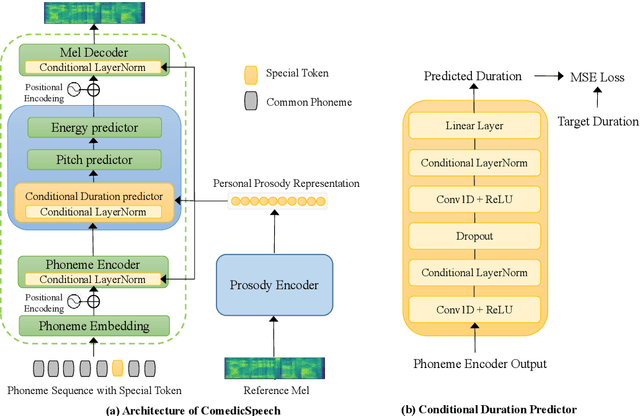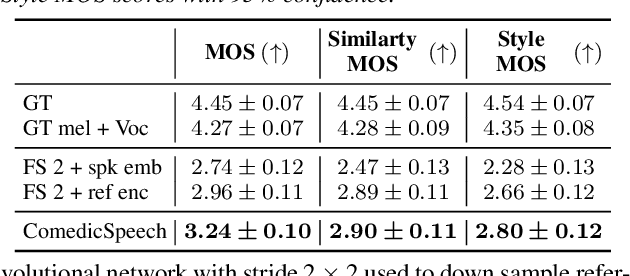Yuyue Wang
ChronusOmni: Improving Time Awareness of Omni Large Language Models
Dec 10, 2025Abstract:Time awareness is a fundamental ability of omni large language models, especially for understanding long videos and answering complex questions. Previous approaches mainly target vision-language scenarios and focus on the explicit temporal grounding questions, such as identifying when a visual event occurs or determining what event happens at aspecific time. However, they often make insufficient use of the audio modality, and overlook implicit temporal grounding across modalities--for example, identifying what is visually present when a character speaks, or determining what is said when a visual event occurs--despite such cross-modal temporal relations being prevalent in real-world scenarios. In this paper, we propose ChronusOmni, an omni large language model designed to enhance temporal awareness for both explicit and implicit audiovisual temporal grounding. First, we interleave text-based timestamp tokens with visual and audio representations at each time unit, enabling unified temporal modeling across modalities. Second, to enforce correct temporal ordering and strengthen fine-grained temporal reasoning, we incorporate reinforcement learning with specially designed reward functions. Moreover, we construct ChronusAV, a temporally-accurate, modality-complete, and cross-modal-aligned dataset to support the training and evaluation on audiovisual temporal grounding task. Experimental results demonstrate that ChronusOmni achieves state-of-the-art performance on ChronusAV with more than 30% improvement and top results on most metrics upon other temporal grounding benchmarks. This highlights the strong temporal awareness of our model across modalities, while preserving general video and audio understanding capabilities.
SpeechComposer: Unifying Multiple Speech Tasks with Prompt Composition
Jan 31, 2024Abstract:Recent advancements in language models have significantly enhanced performance in multiple speech-related tasks. Existing speech language models typically utilize task-dependent prompt tokens to unify various speech tasks in a single model. However, this design omits the intrinsic connections between different speech tasks, which can potentially boost the performance of each task. In this work, we propose a novel decoder-only speech language model, SpeechComposer, that can unify common speech tasks by composing a fixed set of prompt tokens. Built upon four primary tasks -- speech synthesis, speech recognition, speech language modeling, and text language modeling -- SpeechComposer can easily extend to more speech tasks via compositions of well-designed prompt tokens, like voice conversion and speech enhancement. The unification of prompt tokens also makes it possible for knowledge sharing among different speech tasks in a more structured manner. Experimental results demonstrate that our proposed SpeechComposer can improve the performance of both primary tasks and composite tasks, showing the effectiveness of the shared prompt tokens. Remarkably, the unified decoder-only model achieves a comparable and even better performance than the baselines which are expert models designed for single tasks.
ComedicSpeech: Text To Speech For Stand-up Comedies in Low-Resource Scenarios
May 20, 2023



Abstract:Text to Speech (TTS) models can generate natural and high-quality speech, but it is not expressive enough when synthesizing speech with dramatic expressiveness, such as stand-up comedies. Considering comedians have diverse personal speech styles, including personal prosody, rhythm, and fillers, it requires real-world datasets and strong speech style modeling capabilities, which brings challenges. In this paper, we construct a new dataset and develop ComedicSpeech, a TTS system tailored for the stand-up comedy synthesis in low-resource scenarios. First, we extract prosody representation by the prosody encoder and condition it to the TTS model in a flexible way. Second, we enhance the personal rhythm modeling by a conditional duration predictor. Third, we model the personal fillers by introducing comedian-related special tokens. Experiments show that ComedicSpeech achieves better expressiveness than baselines with only ten-minute training data for each comedian. The audio samples are available at https://xh621.github.io/stand-up-comedy-demo/
 Add to Chrome
Add to Chrome Add to Firefox
Add to Firefox Add to Edge
Add to Edge